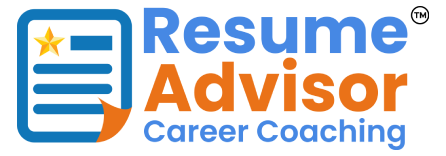
In a world where organizations cross borders and teams span continents, success depends on more than technical expertise. It requires understanding, empathy, and adaptability — the essence of cultural intelligence.
Often referred to as CQ is the ability to relate to, understand, and work effectively with people from different cultural backgrounds. Whether you’re leading a global team, collaborating with international clients, or entering a diverse workplace, this skill defines how well you adapt and connect.
At Resume Advisor, Jonathan helps professionals cultivate not only technical excellence but also the soft skills — like cultural intelligence — that set them apart. Through personalized coaching, Resume Advisor guides clients in mastering communication, leadership, and global awareness to succeed in any environment.
What Is Cultural Intelligence?
Cultural intelligence is more than cultural awareness or sensitivity. It’s the capability to function effectively across cultural contexts — national, organizational, and generational.
In simple terms, it allows you to navigate social and professional differences without misunderstanding or conflict. It’s the skill that helps professionals work seamlessly in global teams, respecting cultural norms while maintaining authenticity.
According to a study, it is composed of four key components:
- Drive (Motivational CQ): Your interest and confidence in working across cultures.
- Knowledge (Cognitive CQ): Understanding how cultures differ and how those differences affect behavior.
- Strategy (Metacognitive CQ): The ability to plan and adjust thinking during intercultural interactions.
- Action (Behavioral CQ): The ability to adapt verbal and nonverbal behavior to fit different cultural situations.
Why it Matters in Today’s Workplace?
In the modern professional world, cultural intelligence is no longer optional — it’s essential. As global collaboration becomes the norm, employers value individuals who can navigate diverse teams with empathy and precision.
Here’s why it is a career-defining skill:
- Global Collaboration: Remote and hybrid work often connect professionals from multiple countries. High intelligence ensures smoother communication.
- Leadership Success: Leaders with high CQ can unite teams, resolve conflict, and make inclusive decisions.
- Client Relations: Understanding cultural expectations builds trust and long-term partnerships.
- Innovation and Creativity: Diverse perspectives fuel fresh ideas when managed effectively.
- Career Mobility: Professionals with this can adapt quickly to global assignments or international roles.
Cultural intelligence as a measurable capability that predicts success in multicultural settings — much like IQ predicts cognitive ability.
Examples of Cultural Intelligence in Action
It is visible in everyday professional interactions. Here are real-world examples:
- Global Teams: A project manager coordinating between U.S., Japan, and India adjusts communication styles — formal with one group, collaborative with another.
- Sales and Client Meetings: A sales professional recognizes that punctuality in one culture and relationship-building in another carry different weights.
- Leadership: A manager leading a multicultural team ensures everyone’s voice is heard, understanding that silence may not equal agreement.
In each scenario, it allows individuals to respect differences while achieving shared goals.
Cultural Intelligence vs. Emotional Intelligence
While similar, cultural intelligence and emotional intelligence (EQ) focus on different areas.
|
Trait |
Focus |
Example |
|
Emotional Intelligence |
Understanding and managing emotions (your own and others’) |
Managing team stress during a project deadline |
|
Cultural Intelligence |
Understanding and adapting to cultural contexts |
Adjusting leadership style to fit a collectivist team |
A professional with strong emotional intelligence may excel in interpersonal relationships, but without it, they might still struggle in diverse global settings.
How to Develop Cultural Intelligence
Building cultural intelligence requires deliberate learning and self-awareness. It’s not about memorizing customs — it’s about developing curiosity, empathy, and flexibility.
Here’s how professionals can improve CQ:
1. Learn About Different Cultures
Read books, attend webinars, and engage with global news sources. Understanding history, communication styles, and values forms a strong foundation.
2. Practice Active Listening
Pay attention not only to words but also to tone, body language, and pauses. Cultural intelligence involves reading between the lines.
3. Seek Feedback
Ask for input on how your communication style comes across in different cultural contexts. Feedback accelerates learning.
4. Build Diverse Networks
Surround yourself with people from different backgrounds. Real-world exposure enhances empathy and adaptability.
5. Stay Humble and Curious
Avoid assumptions. Approach every interaction as an opportunity to learn rather than judge.
The American Psychological Association notes that developing cultural intelligence increases both professional effectiveness and personal well-being.
Resume Advisor: Building Cultural Intelligence for Career Growth
At Resume Advisor, cultural intelligence is more than a buzzword — it’s a skill woven into the career development process. Jonathan partners with clients across industries to help them communicate their value authentically in diverse settings.
How Resume Advisor Helps Clients:
- Personalized Coaching: Jonathan provides one-on-one sessions that help clients navigate interviews and workplace dynamics across different cultural norms.
- Resume & LinkedIn Optimization: Crafting global-ready profiles that resonate with international employers.
- Interview Preparation: Coaching clients to respond confidently to cultural and behavioral interview questions.
- Networking Strategy: Helping professionals expand their connections across borders.
- Career Adaptability: Equipping clients to transition smoothly into multicultural teams or global leadership roles.
Through Resume Advisor, professionals don’t just learn how to communicate effectively — they learn how to connect globally.
Cultural Intelligence in Leadership
Culturally intelligent leaders are invaluable in today’s interconnected world. They understand that leadership isn’t one-size-fits-all — it’s contextual.
Leaders with high cultural intelligence:
- Adapt their communication styles to suit diverse audiences.
- Build inclusive environments that encourage participation from all team members.
- Address conflict constructively, considering cultural sensitivities.
- Foster innovation by leveraging different perspectives.
As multinational teams grow, employers increasingly prioritize leaders with proven cultural intelligence. It signals maturity, adaptability, and global readiness — traits that companies seek at every level.
Cultural Intelligence in Job Applications
When applying for global or diversity-driven roles, highlighting cultural intelligence on your resume and cover letter can set you apart. Here’s how:
- Resume: Mention experience working with international clients or multicultural teams.
- Cover Letter: Explain how your adaptability improved collaboration or project outcomes.
- Interview: Share examples of navigating cultural differences successfully.
At Resume Advisor, Jonathan helps clients integrate these examples seamlessly into resumes, cover letters, and interview narratives — turning it into a clear professional advantage.
Why it Is a Future-Proof Skill
As automation and AI transform industries, soft skills like cultural intelligence remain uniquely human and irreplaceable.
Future workplaces will be defined by:
- Global mobility – Cross-border roles becoming more common.
- Virtual collaboration – Teams spanning multiple time zones.
- Inclusive leadership – Leaders prioritizing belonging and empathy.
Professionals who can bridge cultural gaps will thrive in this evolving landscape.
Measuring Cultural Intelligence
Researchers often use a CQ assessment to evaluate cultural intelligence across four dimensions — Drive, Knowledge, Strategy, and Action. High scores indicate strong adaptability and global competence.
Organizations increasingly use CQ metrics in leadership development and diversity programs to identify potential global leaders.
Developing this skill requires both training and reflection — something Resume Advisor integrates into its career coaching methodology, helping clients assess strengths and identify growth areas.
Final Thoughts
In a world where success depends on collaboration across borders, cultural intelligence has become a cornerstone of professional growth. It’s not about knowing every culture perfectly — it’s about approaching every interaction with curiosity, respect, and adaptability.
With Resume Advisor, professionals gain the tools to elevate both their technical and interpersonal effectiveness. Jonathan’s personalized coaching, combined with strategic resume writing, LinkedIn optimization, and interview preparation, ensures clients present themselves as confident, culturally intelligent professionals ready for global success.
In short, it isn’t just a career skill — it’s a leadership mindset.

